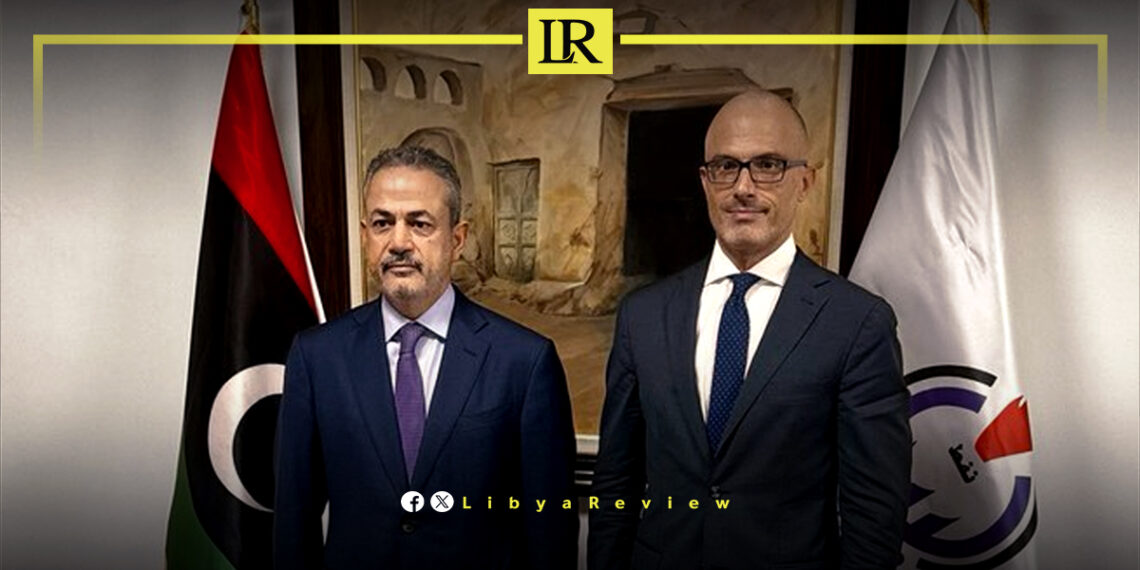On Monday, the Chairman of Libya’s National Oil Corporation (NOC), Farhat Bengdara, met with Nikolaus Orlando, the European Union’s Ambassador to Libya, to discuss expanding cooperation in oil, gas, renewable energy, and environmental protection.
The meeting, which took place in Tripoli, underscored the shared goal of sustainable development and increasing private-sector involvement in these critical industries.
Orlando emphasized the EU’s commitment to helping Libya increase its oil and gas production sustainably, while also exploring its vast potential in renewable energy. The EU considers both priorities vital for the region’s stability and Libya’s long-term economic recovery. According to a statement from the EU delegation, boosting Libya’s energy production while respecting environmental standards is a key mutual interest.
The discussions focused on ways to reduce methane emissions and end the environmentally harmful practice of gas flaring, aligning Libya’s energy sector with international environmental standards. Bengdara and Orlando both agreed on the need to deepen cooperation on these issues, with the EU offering to support Libya’s efforts to modernize and transition to cleaner energy solutions.
Orlando highlighted the European Union’s interest in strengthening its partnership with Libya, particularly in sustainable energy. He stressed the importance of moving beyond oil and gas to include renewable energy sources such as solar and wind power, which Libya has in abundance. This cooperation is seen as crucial for Europe, as it seeks to diversify its energy sources amid the ongoing global energy crisis.
Libya, home to the largest proven oil reserves in Africa, remains a key player in the energy sector despite years of conflict and political instability. The NOC, under Bengdara’s leadership, is working to restore and enhance production capacity, which has been heavily impacted by instability. At the same time, Libya is increasingly looking to capitalize on its renewable energy potential, which could play a critical role in the nation’s future economic strategy.
The EU’s collaboration with Libya comes at a time when Europe is pushing for cleaner, more sustainable energy sources. As the EU works to meet the goals outlined in its Green Deal, partnerships with countries like Libya that have substantial energy resources are becoming more important.


